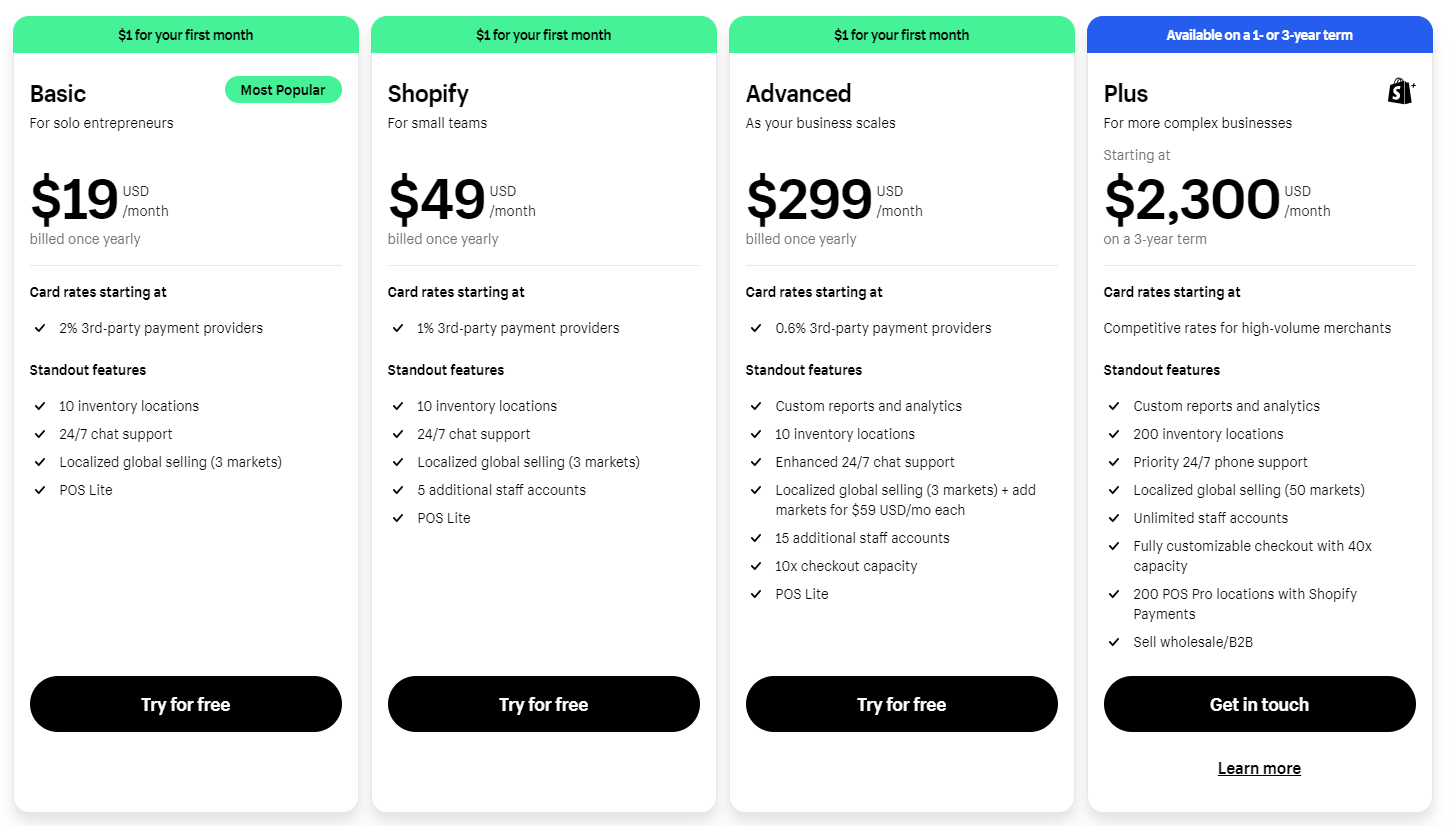
The Amazon seller policy and code of conduct changes from time to time. In this post, we’ll go over the basics of what it is and why it’s important. We’ll cover the key policies under the code of conduct and the major areas that these rules affect. We recommend that all existing and aspiring Amazon sellers pay special attention to the prohibited activities. Doing any of these can get you into serious trouble!
Understanding the Amazon Seller Policy
This policy applies to all Amazon sellers. Each seller must comply with all of the policies as they list products on the Amazon marketplace. When a seller violates a policy, such as listing prohibited content, they face consequences. Amazon may suspend their selling account, which means they can’t sell on Amazon. Suspensions can vary. In extreme cases, Amazon can ban a seller from the marketplace indefinitely. Amazon can also take other actions against a seller. For instance, they may cancel a listing that violates a policy or suspend payments. In worse cases, a seller can face payment forfeiture.
Amazon Seller Code of Conduct
Amazon’s seller policy is presented in the form of a code of conduct. The policies outlined within that code govern seller activities on the platform. Amazon puts heavy importance on compliance because this code helps them manage the platform. Seller who follow the rules maintain good standing on Amazon.
Amazon’s basic expectation is that sellers on the platform behave in a way that is fair and honest. Amazon ensures its customers of a safe buying experience. So sellers must adhere to various policies that support what Amazon guarantees. In a nutshell, sellers need to comply with the following major areas.
Accurate Information
Give Amazon and its customers only accurate information at all times. This applies to your business, and your products and services in general. You must, therefore, use an accurate business name and also ensure that it accurately identifies your business. You must also make sure to list your products in the correct category and take responsibility for errors. If any information changes, you must update it immediately.
Act Fairly
Act in a fair manner, not abusing or misusing any Amazon features or services. Act lawfully, offering only products that do not violate any laws or regulations. Violating this policy includes, but is not limited to:
- Giving Amazon or its customers misleading information. For instance, creating more than one detail page for the same product.
- Giving Amazon or its customers inappropriate information. For instance, uploading offensive product images to your listings.
- Trying to manipulate your sales rank. For instance, encouraging and / or accepting fake orders (including orders you paid for yourself). This also includes making any kind of claim about your sales rank in your product titles or descriptions.
- Increasing the price of a product after a customer order is confirmed, and trying to have them pay the new price.
- Using artificial means to inflate web traffic to your listings, like using bots or paying for clicks.
- Disrespecting the intellectual property rights of other sellers. This includes selling counterfeit products or products that infringe on another brand’s rights.
- Taking steps that abuse or result in damage to other sellers or their listings or ratings.
- Give other people permission to act on your behalf as the official seller in any way that violates an Amazon seller policy or your seller agreement with Amazon
Product Counterfeiting

Amazon has a specific anti-counterfeiting policy. Amazon demands that all products that sellers offer for sale on the marketplace are authentic. This means that selling counterfeit products is strictly prohibited. Counterfeit, or inauthentic, products include bootleg (illegally made, distributed, or sold), fakes, pirated copies, illegally replicated or reproduced items, and products that infringe on intellectual property rights.
Any seller who lists and transacts in counterfeits can lose their selling privileges. Amazon can also withhold any proceeds from such sales and other funds. In addition, Amazon will likely dispose of all inventory in their warehouses that is flagged as counterfeit. In some cases, Amazon will report the sale of counterfeits to law enforcement agencies. This may be for both criminal prosecution and civil action, as the authorities deem fit.
As an Amazon seller, it is your responsibility to vet the products that you sell. You cannot simply pass the blame on to a supplier. Amazon will, of course, investigate in cases where you are not complicit. However, if Amazon determines that you did not do due diligence, at least, you can still be held responsible.
Intellectual Property Rights and Infringement Filing
Amazon helps sellers to first establish their intellectual property. Then they help sellers to preserve their rights using their advanced technology. Amazon has systems set up to correctly identify true brand owners versus infringing parties. Sellers also have access to various tools that will help them guard against others who are intent on selling counterfeits. Trademarks will protect a seller’s names and symbols as well as designs and images that they use in commerce. Patents give sellers exclusive rights over their inventions. Copyrights secure literary and artistic content like books, pictures, and media.
Sellers can hire a separate brand protection agency to take care of any intellectual property infringement issues. Amazon accepts submissions of notices from authorized filing agents on the behalf of sellers. Active sellers cannot, however, file infringement notices as a brand agent if it could benefit their own selling account. For example, Amazon will reject submissions that remove a competing listing because it would boost business for that seller. Amazon may terminate a seller’s account if they proceed and file a notice as an agent for their account’s benefit.
Ratings, Feedback, and Reviews
Sellers must refrain from influencing a customer’s ratings or feedback, or their product reviews. This applies whether the ratings or feedback refer to you or another seller. This also includes attempting to inflate ratings or feedback. The same goes for product reviews. You can request feedback and reviews from customers who bought your product. This must, however, be done in a neutral manner. This means never:
- Offering to pay for an order offering an incentive in exchange for
- a high rating and positive feedback and / or a great review, or
- removing negative feedback or reviews.
(Incentives can include coupons for their next order, free products, etc.)
- Asking a customer to give only positive feedback or reviews.
- Asking a customer to remove or change a review.
- Intentionally asking for reviews from only those customers who you know had a positive buying experience with you.
- Placing orders in your own store then reviewing them.
- Ordering from a competitor then reviewing them.
Customer Communication and Information

Never contact customers outside of the Amazon Buyer-Seller Messaging system. Always respond to customer inquiries and complaints within the allotted time in the Buyer-Seller Messaging system. Even if a customer gives you their information, you may not use it to contact them outside of Amazon.
Never send unsolicited messages to customers, or any inappropriate communications. This means that you may only communicate with customers when it’s necessary. One case is to fulfill their order and the other case is to provide customer service. Take special note that these conditions do not include marketing communications, which are, therefore, not allowed. You also may not share any customer information with any third party. Delete any customer information like an address or phone number after fulfilling an order.
Circumventing Amazon Processes
Do not try to go around the approved Amazon sales process outlined for sellers. Do not divert Amazon customers to another website. This includes giving Amazon customers links to external sources or messages prompting them to visit any outside pages. You may not encourage or instruct a customer to complete any part of their transaction on another platform.
Refrain from operating additional selling accounts in the same region on the Amazon marketplace. You may only have more than one selling account if you have a legitimate business need for separate accounts. These include:
- Multiple brands under separate companies.
- Product manufacturing for two distinctly separate business entities.
- An Amazon program they recruited you for requires a separate selling account.
Amazon reserves the right, outside of these reasons, to determine whether you need another account. They also reserve the right to refuse an additional account. Usually, this is because a seller’s existing account is not in good standing. This can also lead to Amazon deactivating all the seller’s existing accounts. Once the seller takes the necessary steps to get back into good standing, the accounts can be restored. Then the seller can reapply for a separate account.
Other Key Areas to Note

Account Health and Compliance
Amazon has an Account Health Rating tool that helps sellers remain compliant. The tool gives sellers more accurate insight into their account health. This means they can identify and fix any issues more quickly. This also means that maintaining great account health becomes easier. The result is a more successful business all around.
The Account Health Rating tool uses a very simple metric. Sellers can see their overall rating as a numerical value, which represents one of three categories. An account is either healthy, at risk, or unhealthy.
Product Listing Guidelines
Amazon regulates what can be listed on the marketplace. Sometimes, a product may or may not be listed based on certain conditions. For example:
- Cameras must come in either their original packaging or plain boxes if indicated in the title.
- Computers can only show the condition ‘Acceptable’ if they are not in their original packaging.
- Software sold must be the full retail version (not promotional or Beta).
- Textbooks must have matching ISBN or jacket type.
Amazon prohibits sellers from listing certain products, including:
- Promotional samples, bundles, and advance copies.
- Expired or nearly expired products.
- Items that the supplier or manufacturer already earmarked for disposal.
- Items that are stained, corroded, moldy, or missing parts.
Amazon may also deem certain items unsellable for a variety of reasons.
If you violate any Amazon listing policy, you can appeal by submitting a written plan of action. This outlines what caused the issue, how you will correct it, and what you will do to prevent it from happening again.
If you think there’s some mistake, check that the following are true:
- The product matches its listing (i.e. brand name, UPC code, images, description).
- You have never sold that item previously or had an active listing for it.
- You have before-and-after photos of inventory and shipped items and supplier invoices that show the item was shipped in the condition that you listed.
- Proof that your listing is not a duplicate, including your product’s USP and special features.
- Proof of the content of multipacks and the corresponding individual item pricing.
- The ASINs and details of all individual items included in bundles.
- Accurate and consistent descriptions for variations.
- Fair pricing for variations.
- The identity of authorized distributors and verification from them of your authority to sell (i.e. letter of authorization or other legal documents).
Frequently Asked Questions

How can I keep track of policy updates and changes?
The best way to stay updated on all updates is to read Amazon’s announcements. Amazon regularly sends all sellers communications about important changes. Don’t let these emails go to spam, or worse, delete them without at least scanning them. You can also look at the news and announcements section in Seller Central. Amazon seller forums can be very helpful if you have trouble navigating changes. More experienced sellers can help you understand new information and answer your questions. They can also share best practices with you in light of certain updates.
Don’t shrug off Amazon webinars and events for sellers, either. That’s where you get to hear directly from Amazon representatives and experts. If you need loads of help, consider consulting with an Amazon expert who can guide you as your business adapts.
What steps should I take if I accidentally violate a policy?
If you accidentally violated a policy and you catch yourself, correct it immediately. Amazon may not have noticed it yet, and it’s always better to correct the error yourself. If Amazon does notice, they must first investigate the violation. This can mean waiting for their advice on how to proceed. They will usually call or email you to inform you of any violations. You can also monitor your Account Health Dashboard in Seller Central.
Can I appeal a decision made by Amazon regarding policy violations?
Yes. If Amazon spots any unaddressed policy violations relating to your selling account, they will usually call or email you. Then you need to go to your Account Health Dashboard in Seller Central. You can appeal the violations under the Product Policy Compliance section on that page. If you have any listing and policy violations, you need to get them sorted out as fast as possible. If you ignore them, Amazon might take steps that will limit your selling capabilities.
Remember that you are responsible to ensure that all your selling activities on Amazon are compliant. This means adhering to all laws as well as marketplace policies. Do not try to continue to sell without addressing policy violations. You can always reach out to Amazon’s Account Health Support team if you need more help.
What Is EcomBalance?

EcomBalance is a monthly bookkeeping service specialized for eCommerce companies selling on Amazon, Shopify, Ebay, Etsy, WooCommerce, & other eCommerce channels.
We take monthly bookkeeping off your plate and deliver you your financial statements by the 15th or 20th of each month.
You’ll have your Profit and Loss Statement, Balance Sheet, and Cash Flow Statement ready for analysis each month so you and your business partners can make better business decisions.
Interested in learning more? Schedule a call with our CEO, Nathan Hirsch.
And here’s some free resources:
- Monthly Finance Meeting Agenda
- 9 Steps to Master Your Ecommerce Bookkeeping Checklist
- The Ultimate Guide on Finding an Ecommerce Virtual Bookkeeping Service
- What Is a Profit and Loss Statement?
- How to Read & Interpret a Cash Flow Statement
- How to Read a Balance Sheet & Truly Understand It
Conclusion
Amazon is serious about their policies. Our best advice for you would be to follow all their policies and guidelines. If you comply, Amazon rewards you. If you are not careful, however, the punishment can be so much worse than you might expect.
Staying informed and understanding policy updates is vital to uninterrupted and profitable storefront operations on Amazon. Make compliance a priority by staying up-to-date and making adjustments in timely fashion.








